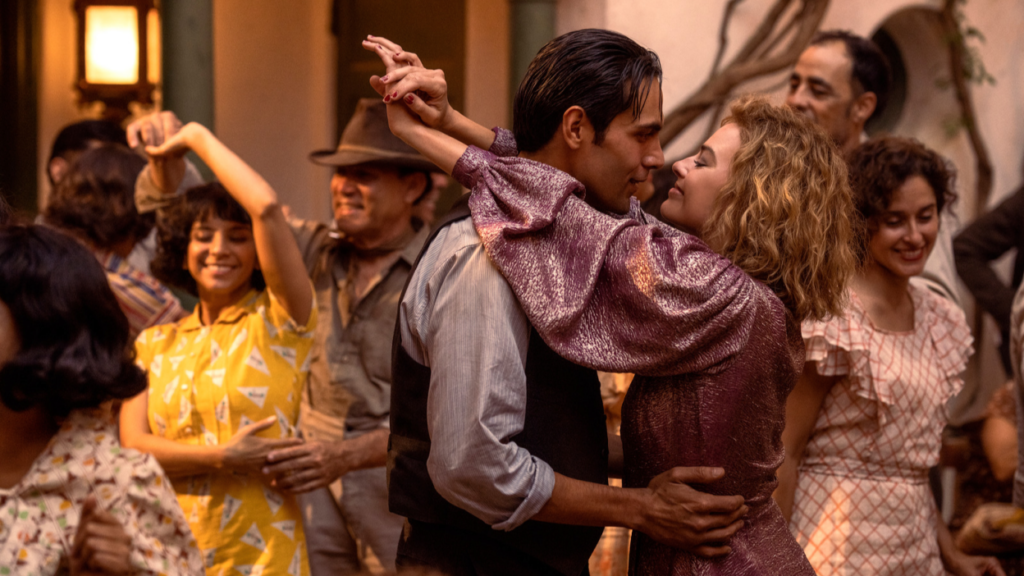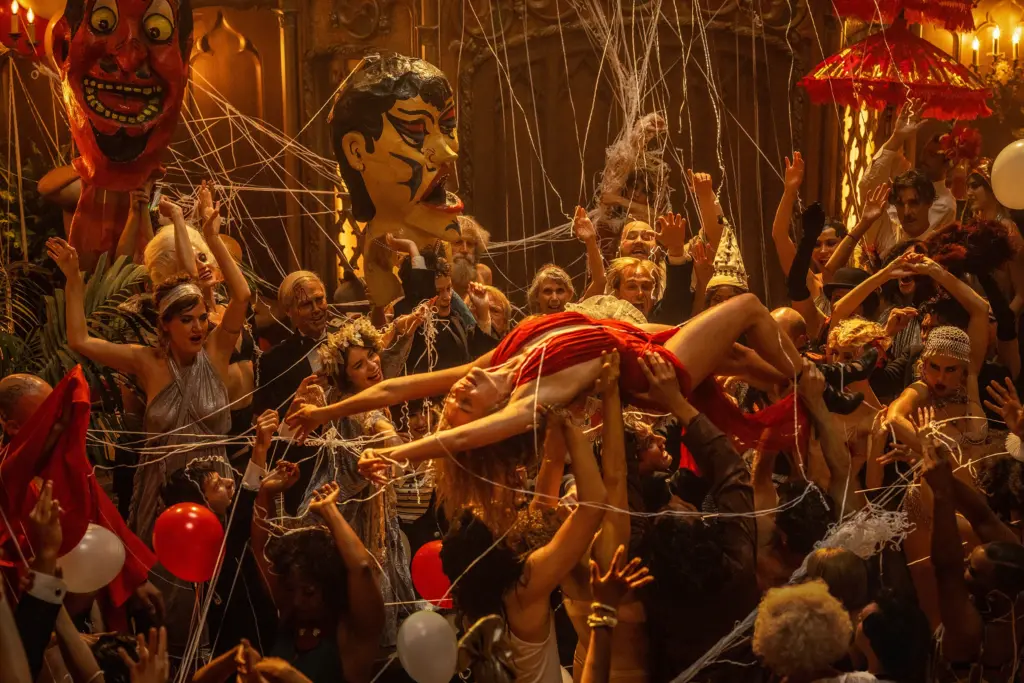‘Babylon’: A Histrionic Misfire?

In the tumultuous opening of Damien Chazelle’s vivid portrayal of early Hollywood, an elephant delivers a spectacular explosion onto the screen, enveloping the audience in a chaotic cascade of excrement.
Over the next three seemingly interminable hours, the spectacle unfolds, featuring a man consuming live rats in the depths of hell, a colossal alligator menacing subterranean revellers to the tune of ‘Aba Daba Honeymoon’ and a rattlesnake sinking its fangs into Margot Robbie’s neck, followed by a rather gruesome decapitation with a knife.

Amidst this, an actor relieves himself on a Fatty Arbuckle-style partygoer and Robbie unleashes a projectile vomit, leaving a once pristine Klikó rug in a sorry state. All of this is presented in a frenetic, hyperactive style that makes Baz Luhrmann’s ‘Moulin Rouge!’ appear languid in comparison. It’s anything but subtle, and some might argue, far from good.
The narrative, if it can be called that, unfolds as a succession of meticulously choreographed set pieces connected by date markers and intermittent bouts of intense screaming. It traces the aspirations of silver-screen dreamers Manuel ‘Manny’ Torres (Diego Calva) and Nellie LaRoy (Robbie), as they climb the precarious ladder to stardom during the formative days of motion pictures.

Nellie dreams of becoming a star, while Manny harbours a more general ambition to be involved in the movie-making business, be it shovelling waste at glamorous parties, fixing things for matinee idol Jack Conrad (Brad Pitt), or taking on undefined roles at a studio.
As the fortunes of Manny and Nellie change, so does the world of Hollywood, transitioning from silent films to the era of sound. The unregulated chaos of the emerging industry, immortalized in Kenneth Anger’s Hollywood ‘Babylon,’ gives way to a more corporate landscape. Chazelle boldly positions ‘Babylon’ as an origin story for ‘Singin’ in the Rain,’ clumsily referencing the 1952 classic and even lifting clips from it, inadvertently highlighting the superior craftsmanship of Stanley Donen and Gene Kelly.

Despite its nods to movie history and its self-aware revelry in bodily fluids and opulent excess, ‘Babylon’ falls flat as exhaustingly unexciting fare. It leans towards the hysterical rather than the historical, the derivative rather than the inventive. Instances, like Manny’s encounter with a giggling gangster reminiscent of a scene in Paul Thomas Anderson’s ‘Boogie Nights,’ feel borrowed, lacking the freshness of originality.
The jazz subplots, a recurring motif in Chazelle’s works, appear more as an attempt to address past criticisms of whitewashing in ‘La La Land’ than a seamless integration into the narrative.
Performances oscillate between pastiche and pantomime, with characters like Elinor St John (Jean Smart) and German director Otto von Strassberger (Spike Jonze) embodying a blend of homage and exaggerated theatricality.

Viewers might find amusement in identifying celebrity cyphers, but the overarching question lingers – is Pitt’s character an ode to silent-movie star John Gilbert, and how much of Clara Bow resonates in Nellie LaRoy? The resemblance of Li Jun Li’s vampy Lady Fay Zhu to Anna May Wong, the groundbreaking Chinese American star, raises further speculation.
The film’s overworked score, lavish production design, and swirling cinematography contribute to its overcooked atmosphere. The climactic sequence, a mishmash reminiscent of ‘Cinema Paradiso’ and the Stargate sequence from ‘2001: A Space Odyssey,’ aims for a time-jumping journey through decades of movie magic but lands more as an awkward showreel, akin to cringe-worthy multiplex advertisements before the main feature.








